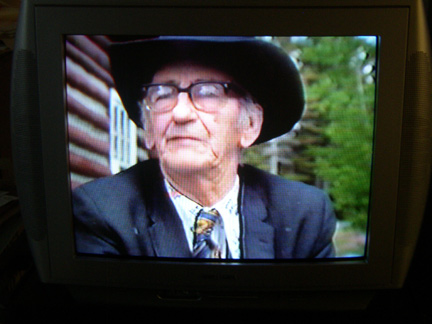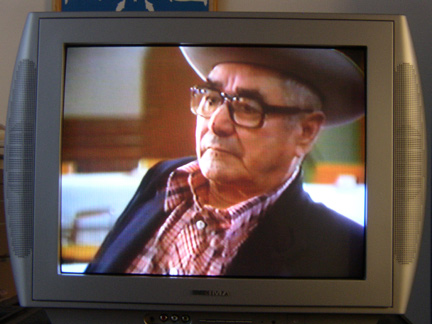|
Maurice L'Hirondelle Former President, FMSA
click to enlarge cover |
Start 1930-31 1932 1933 1934 1935-38 1939 1940-41
Beginning in 1935, the Métis leaders scrambled to be heard by the Ewing Commission. And they were successful. They were the first to make presentations to the Commission on February 25, 28 and March 2, 1935. They also kept in contact via letters to and from the Commission Secretary, Rankine. Brady and Norris, however, were, in fact, worried that the Commission was working against Métis interests.
In August 1935, the UFA/CCF government loses all its seats in the election. The Social Credit take over and Aberhart becomes Premier.
From early 1936 to mid-1938, there was very little communication between the Métis leaders and government. Brady and Norris had left the Association but they return in 1938.
In July 1938, Pete Tomkins (elected to the Métis executive in 1934) was offered a job, on a temporary basis, as the lead Métis administrator by the Social Credit Minister of Health, W. W. Cross.
He accepted and began August 5, 1938. He was paid $100 per month with no travel expenses. His job was to report back within sixty days on suitable reserve lands for the Métis.
Cross asked that Tomkins bring Dion and Brady onto a committee to help but he clearly did not want Norris to be part of it. This was a preemptive strike against Association executive unity by the Social Credit government. In fact, in hindsight, fracturing the provincial Association may have been a policy objective of the Bureau of Relief and Public Welfare***, if not the Social Credit government as a whole.
On November 22, 1938 Métis-specific legislation, The Métis Population Betterment Act, was given Royal Assent. The responsible agency, the "Metis Committee", was installed within the Bureau of Relief and Public Welfare and Frank Buck became the chief Métis administrator, replacing Tomkins who was now his employee. The "Métis Committee" included Dion and Tomkins as Métis organizers. Buck also was helped by Braithwaite a former member of the Ewing Commission.
Brady, another Association executive member, became a civil servant until 1941, after refusing for political reasons before that. Norris apparently never was asked to join, nor did he appear to wish to be a government employee. The "Metis Committee" quickly went about its work: identified land for the Colonies, developed regulations, and organized local boards, and left the provincial Métis Association with no role to play.
|


